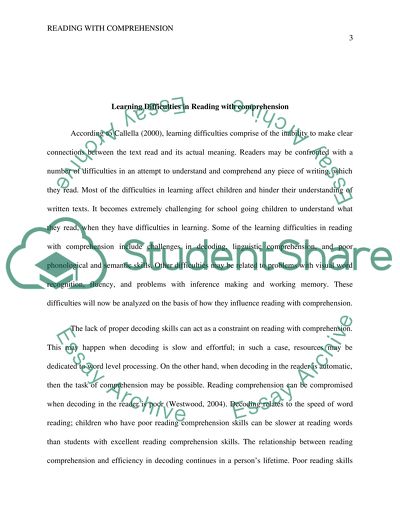Cite this document
(“Reading with Comprehension Essay Example | Topics and Well Written Essays - 1000 words”, n.d.)
Retrieved from https://studentshare.org/english/1445795-reading-with-comprehension
Retrieved from https://studentshare.org/english/1445795-reading-with-comprehension
(Reading With Comprehension Essay Example | Topics and Well Written Essays - 1000 Words)
https://studentshare.org/english/1445795-reading-with-comprehension.
https://studentshare.org/english/1445795-reading-with-comprehension.
“Reading With Comprehension Essay Example | Topics and Well Written Essays - 1000 Words”, n.d. https://studentshare.org/english/1445795-reading-with-comprehension.


